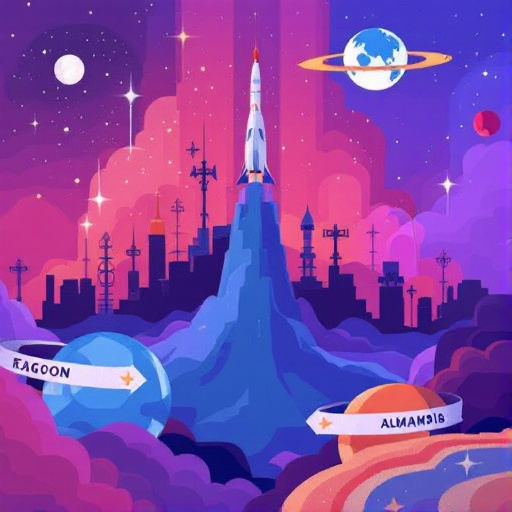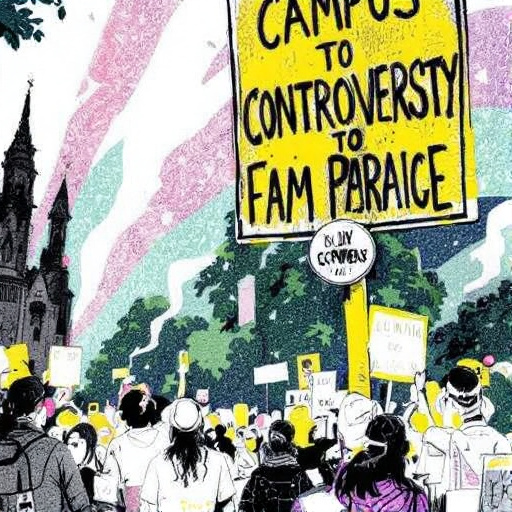Featured Articles
- 8 Ways College Alumni are Revolutionizing Sustainable Urban Development in Emerging Cities
- Alumni Activism: How College Graduates are Shaping the Future of Social Movements and Policy Change
- Alumni as Crypto Investors: Unlocking Hidden Connections Between College Networks and the Blockchain Revolution
- From Campus to Controversy: The Hidden Impact of Alumni Networks on Modern Activism
- "From Campus to Cosmos: How College Alumni Are Shaping Space Exploration and Technology"
Reviving Campus Ghosts: How Alumni Networks are Haunting Modern College Traditions
Reviving Campus Ghosts: How Alumni Networks are Haunting Modern College Traditions
Alumni networks are more than just social platforms; they're becoming significant players in shaping and reviving college traditions, forging connections that resonate years beyond graduation. This article explores how these networks breathe new life into campus culture, the challenges they face, and the impact they have on both current students and alumni alike.
Ghosts of Traditions Past: The Mythos of Alumni Networks
Imagine strolling through your campus, nostalgia fluttering as you pass the library, where generations of students have found solace among stacks of dusty books. You aren't alone; alumni often feel the same pull, and this shared emotion fuels vibrant alumni networks across the globe. For instance, a recent survey revealed that 87% of alumni reported feeling a strong connection to their alma mater, underscoring the enduring bond formed during those formative years (Source: National Alumni Association).
Campus Traditions: Anchoring Alumni to Their Roots
Every school has its quirks—homecoming parades, pep rallies, or even quirky rituals like the "Midnight Breakfast" at various universities before finals. These traditions are not merely ceremonies; they cement a communal identity, tying generations together. When alumni return, they often participate in these events, creating an atmosphere ripe with memories. For example, the University of Florida hosted its 100th Gator Growl, the largest student-run pep rally in the U.S., featuring notable alumni who returned to share both stories and laughter.
The Haunting Presence of Alumni: A Case Study
Consider the case of the University of California, Berkeley, where its alumni network has taken the lead in reviving lost traditions. Two decades ago, the campus was on the verge of losing its beloved "Cal Day" event. Due to dwindling attendance and funding, the celebration seemed slated for extinction. However, alumni stepped in, fundraising more than $300,000 through social media initiatives and networking events (Source: Berkeley Alumni Association). The return of this event not only rekindled former traditions but re-engaged students who craved a connection to their school's storied history.
The Joy of Connection: Building Relationships
One of the distinct joys of reconnecting through alumni networks lies in forming meaningful relationships. Picture this: Jess, a recent graduate, strolls into a local coffee shop in her hometown and spots a fellow alum. Their shared experiences—hitting the books late into the night, enduring awkward dorm life, attending those rowdy football games—spark conversations that could lead to job opportunities. In fact, nearly 70% of jobs are secured via networking, illustrating how vital these connections can be for recent grads (Source: LinkedIn).
Modern Technology Meets Tradition
Today's alumni networks are adapting to technology in fascinating ways. Social media platforms like LinkedIn and Facebook enable alumni to connect more fluidly than ever. Universities are leveraging these platforms to maintain relationships with their graduates, hosting virtual events and webinars featuring distinguished alumni sharing career insights. The University of Michigan, for instance, boasts a successful online mentorship program where over 1,000 alumni participated last year, aiding more than 3,000 current students in their career aspirations.
Rethinking Alumni Events: An Inclusive Approach
To effectively engage alumni, colleges must examine how these events cater to diverse groups. Traditional events like reunions can feel exclusive or unwelcoming, especially for underrepresented alumni. A fresh example can be seen at Princeton, where the alumni committee organized "Inclusive Reunions," focusing on diverse representation and accessibility, leading to a record turnout, demonstrating that when everyone feels invited, memories are inevitably made.
Challenges Ahead: Breaking the Chains
As invigorating as the role of alumni networks can be, challenges persist. One major hurdle is the generational gap. Older alumni may find it difficult to relate to current student issues—social justice movements, mental health awareness, and ever-evolving technology—that shape today's college experience. On the flip side, recent grads may feel alienated by traditional networking norms. To bridge this gap, universities must craft events acknowledging these disparities, creating spaces for dialogue that honor both perspectives.
Economics of Alumni Networks: Dollar Signs or Friends?
It’s essential that alumni networks balance their social impact with financial stability. A study by the Council for Advancement and Support of Education found that successful alumni programs can raise as much as $10 million annually for their institutions. However, an overemphasis on fundraising could alienate alumni if they feel they're merely being seen as a "dollar sign." Engaging alumni through alumni-oriented events—which are more about enjoyment than the bottom line—can foster goodwill rather than transactional relationships.
Spooky Alumni Superstitions: A Light-Hearted Look
Speaking of ghosts, have you heard the one about the alumni who couldn't escape the spirit of the school? One humorous incident involved a group of alumni returning to campus only to discover they had accidentally stumbled into an ongoing campus ghost tour, complete with eerie tales about a haunted library. They decided to join in, proudly proclaiming, "We may be ghosts of our former selves, but this school will always have a haunting hold on us!" This playful encounter exemplifies how humor can facilitate connections and create lasting bonds.
Conclusion: The Future of Alumni Engagement
The symbiotic relationship between alumni networks and campus traditions continues to evolve. To not only preserve but revive these traditions, universities must adapt to changing needs while fostering a sense of belonging. By embracing modern platforms and creating inclusive events, the haunting presence of alumni will not fade; instead, it will flourish in a vibrant, interconnected community that honors past legacies while shaping future generations.
Ultimately, a campus is more than just classrooms and dorms—it’s a tapestry woven from shared experiences, friendships, and traditions. The ghosts of alumni networks are not scary; they are reminders of the endless possibilities still to come. And as generations continue to haunt their campuses with stories of laughter, joy, and camaraderie, we all stand to benefit from this haunting charm.




